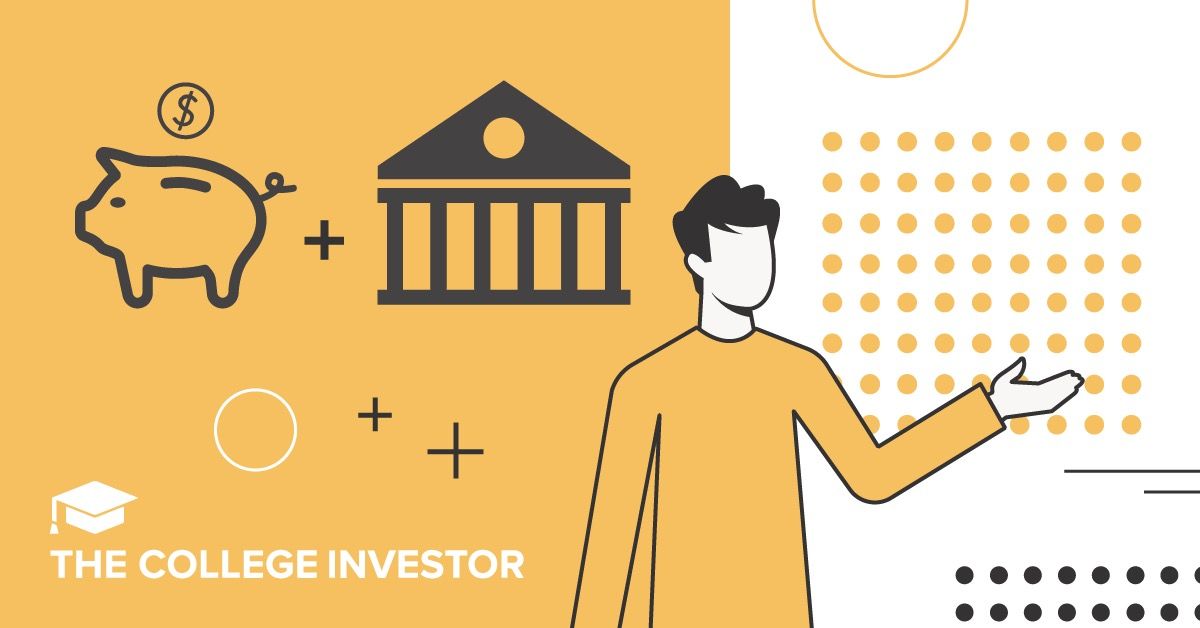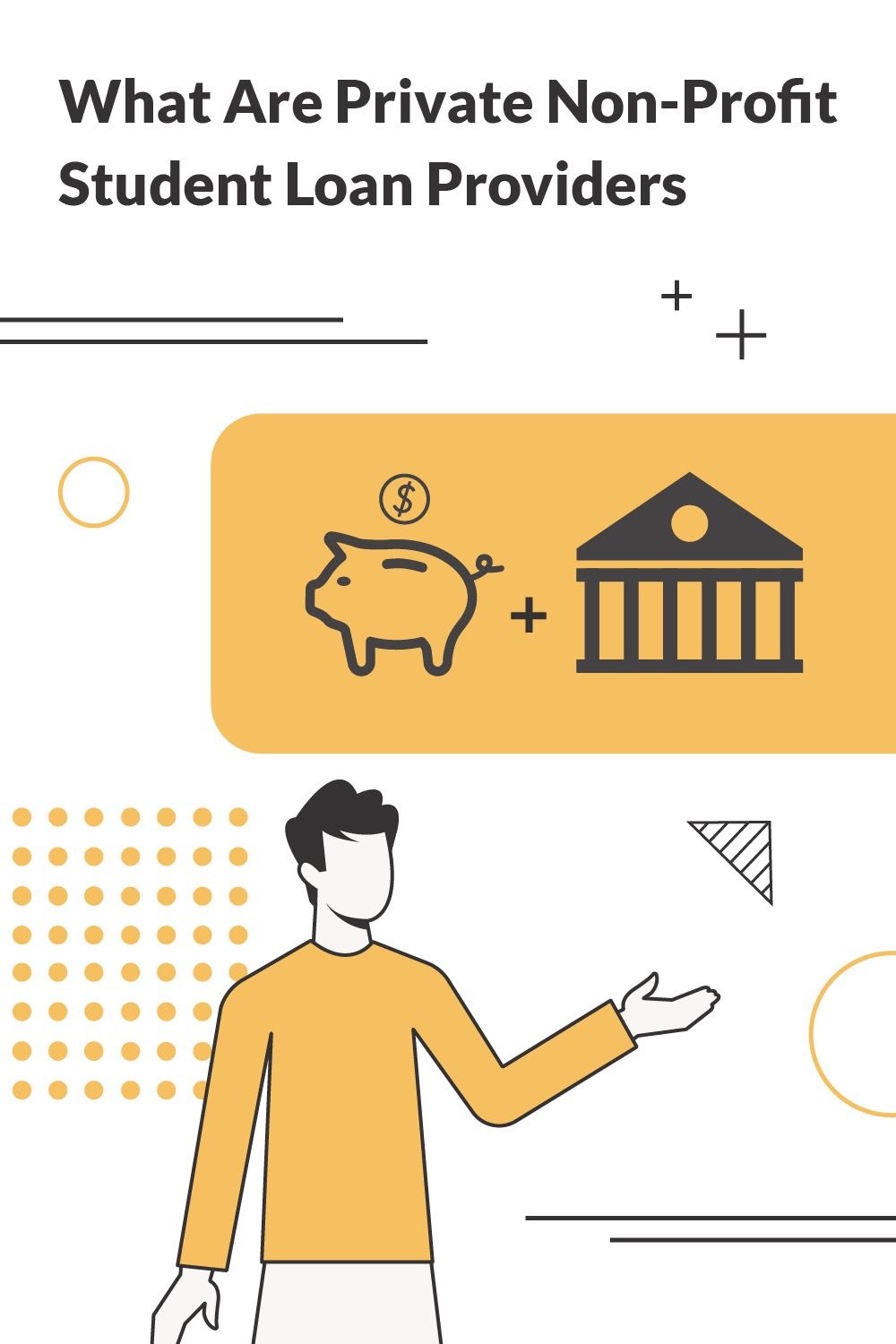
Did you know there are state-based non-profit lenders that sometimes provide the lowest student loan rates? It's true - but there aren't many, and the best rates are typically reserved for borrowers in that state.
There are many options when it comes to paying for college, and each comes with pros and cons.
Scholarships and grants are a no-brainer if you can qualify, and the more you can save on your own, the better.
Still, given the extraordinary cost of a college degree, many people must also use student loans.
However, what many don't realize is that there are several types of student loans, and different loan providers. In this article, we'll explore an option that's often overlooked: private non-profit student loans. These are still private student loans, but they may offer better rates or incentives compared to traditional private student loan lenders.
Private Non-Profit Student Loans vs. Other Student Loans
Two of the most common student loan types are federal and private. Federal loans are issued by the federal government, and are the ones that offer various student loan repayment plans, which you may or may not be familiar with.
Private student loans are offered by banks and other lenders. Your credit score, the loan amount, and your financial situation, will determine what you qualify for. And while most private student loan providers are for-profit companies, private non-profit lenders exist and may be a better option, if you qualify.
These non-profit student loan lenders are typically chartered by individual states offering better private student loans for their students - typically through interest rate discounts for in-state students or repayment incentives.
Why Choose A Non-Profit Student Loan Provider?
Non-profit student loan providers have a primary aim to help students and their families, and that mission takes precedence over chasing profit. As a result, they can offer lower interest rates or fees, allowing borrowers to save on some of the costs of college.
These lenders are typically able to take advantage of low-cost (and tax-free) municipal borrowing, which then allows them to access funds at low cost. This passes the savings on to you.
Many non-profits also provide scholarships, grants, and educational tools that can be as valuable as access to loans.
Most private non-profit student loans are not available nationwide - or if they are available nationwide, they don't offer the same discounts that would be available to in-state students. Many states have set up quasi-governmental non-profit organizations intended to help students and their families in a particular state or region.
So if you live in an area that does not have a nonprofit student loan provider, you may have to explore other options.
Private Non-Profit Student Loan Lenders
While there are many different non-profit student loan providers out there, here are five of the most common:
Brazos (Texas)
Brazos Higher Education is a nonprofit organization whose mission is to help qualifying students achieve higher education at a lower cost. They are headquartered in Texas and primarily offer loans to Texas residents or out-of-state residents attending Texas universities. They offer low-interest loans with low or even no fees.
See our full Brazos review here.
CHESLA (Connecticut)
The Connecticut Higher Education Supplemental Loan Authority (CHESLA) is a nonprofit organization helping Connecticut students, alumni and their families. CHESLA was founded in 1982 by the State of Connecticut as a way to help students and families with the rising cost of college.
Read our full CHESLA review here.
EDvestinU (New Hampshire)
EDvestinU is a nonprofit student loan lender focused on helping New Hampshire students. They offer undergraduate and graduate student loans, as well as student loan refinancing. There is a special discount for residents of New Hampshire and those attending college in New Hampshire.
Read our full EDvestinU review here.
ISL (Iowa)
The Iowa Student Loan Liquidity Corporation, doing business as ISL Education Lending, is another nonprofit student loan lender. They are based in West Des Moines, Iowa and their mission is to help Iowa students and families obtain the resources necessary to succeed in postsecondary education.
See our full ISL student loans review here.
MEFA (Massachusetts)
MEFA is the Massachusetts Education Financing Authority, and they are a non-profit lender that supports Massachusetts residents and students. MEFA offers low-cost fixed rate loans for undergraduate and graduate students, as well as student loan refinancing options.
Read our full MEFA review here.
OSLA (Oklahoma)
Oklahoma also has a nonprofit student loan provider, the Oklahoma Student Loan Authority (OSLA). OSLA was created in 1972 as a public trust by the Oklahoma legislature. Although OSLA was created by the Oklahoma state legislature, it receives no funds from the state government for operating expenses.
Read our full OSLA review here.
RISLA (Rhode Island)
The Rhode Island Student Loan Authority (RISLA) was first set up as a quasi-state authority by Rhode Island in 1981. RISLA provides low cost education loans and other resources to Rhode Island residents. They also have the RISLA College Planning Center as a free service to students and parents to help them plan and pay for their education.
Read our full RISLA student loan review here.
Other State Lenders
A few states have very specialized loan programs. We put these in a slightly different category because the loans are more niche. However, if you're a resident of these states or attending college there, they may be helpful to supplement your federal student loans.
Alaska
Alaska offers the Alaska Supplemental Educational Loan. There are limits and requirements to how much you can borrow. Learn more from the Alaska Commission on Postsecondary Education.
See our full guide to Alaska Student Loans and Financial Aid.
Arkansas
Arkansas offers a variety of loans for undergraduates, graduates, and parents through the Arkansas Student Loan Authority.
See our full guide to Arkansas Student Loans and Financial Aid.
Georgia
Georgia offers the Student Access Loan for eligible students at the University System of Georgia or the Technical College System of Georgia.
Learn more about Georgia Student Loans and Financial Aid.
Minnesota
Minnesota offers the SELF student loan program, which can provide $20,000 to eligible students in the state.
Learn more about Minnesota Student Loans and Financial Aid.
Mississippi
Mississippi offers a variety of forgivable student loans for various graduate student programs that fulfill needs in the state.
Learn more about Mississippi Student Loans and Financial Aid.
Pennsylvania
Pennsylvania offers the PA Forward student loan program to residents of Pennsylvania who are attending college in-state or out-of-state.
Learn more about Pennsylvania Student Loans and Financial Aid.
Vermont
Vermont offers a low-cost fixed rate loan to residents of the state through the Vermont Advantage Loan program.
Learn more about Vermont Student Loans and Financial Aid.
The Bottom Line
If you live in a state with access to a non-profit student loan provider, they are worth considering due to the potentially lower interest rates and fees. In addition, many non-profit student loan providers offer grants, scholarships, and other educational resources that can be helpful to prospective students and their families.
The bottom line is that you have many options when it comes to preparing and paying for higher education costs, so you want to be aware of all of them.

Robert Farrington is America’s Millennial Money Expert® and America’s Student Loan Debt Expert™, and the founder of The College Investor, a personal finance site dedicated to helping millennials escape student loan debt to start investing and building wealth for the future. You can learn more about him on the About Page or on his personal site RobertFarrington.com.
He regularly writes about investing, student loan debt, and general personal finance topics geared toward anyone wanting to earn more, get out of debt, and start building wealth for the future.
He has been quoted in major publications, including the New York Times, Wall Street Journal, Washington Post, ABC, NBC, Today, and more. He is also a regular contributor to Forbes.
Editor: Colin Graves Reviewed by: Chris Muller
